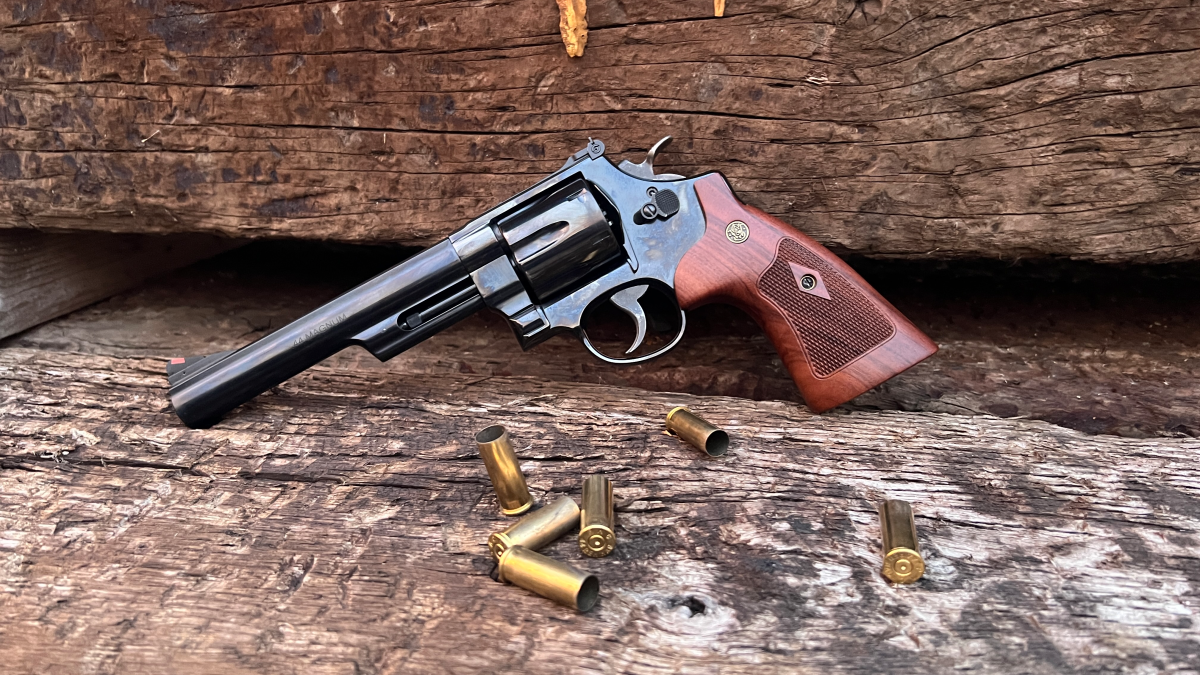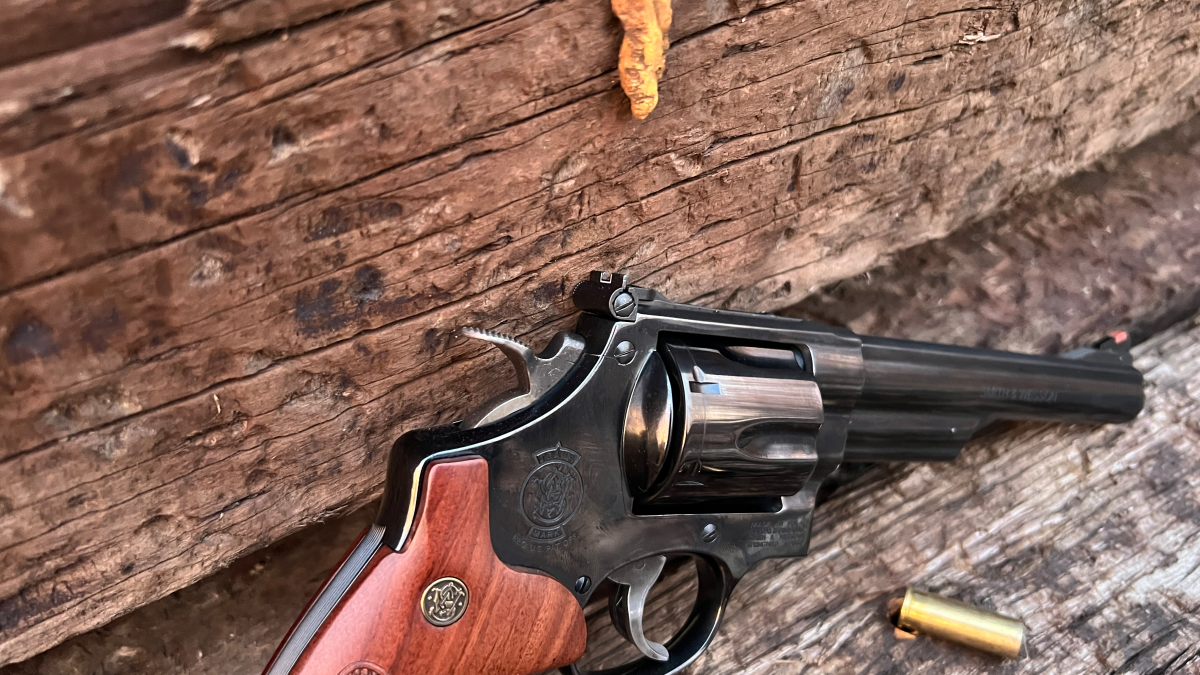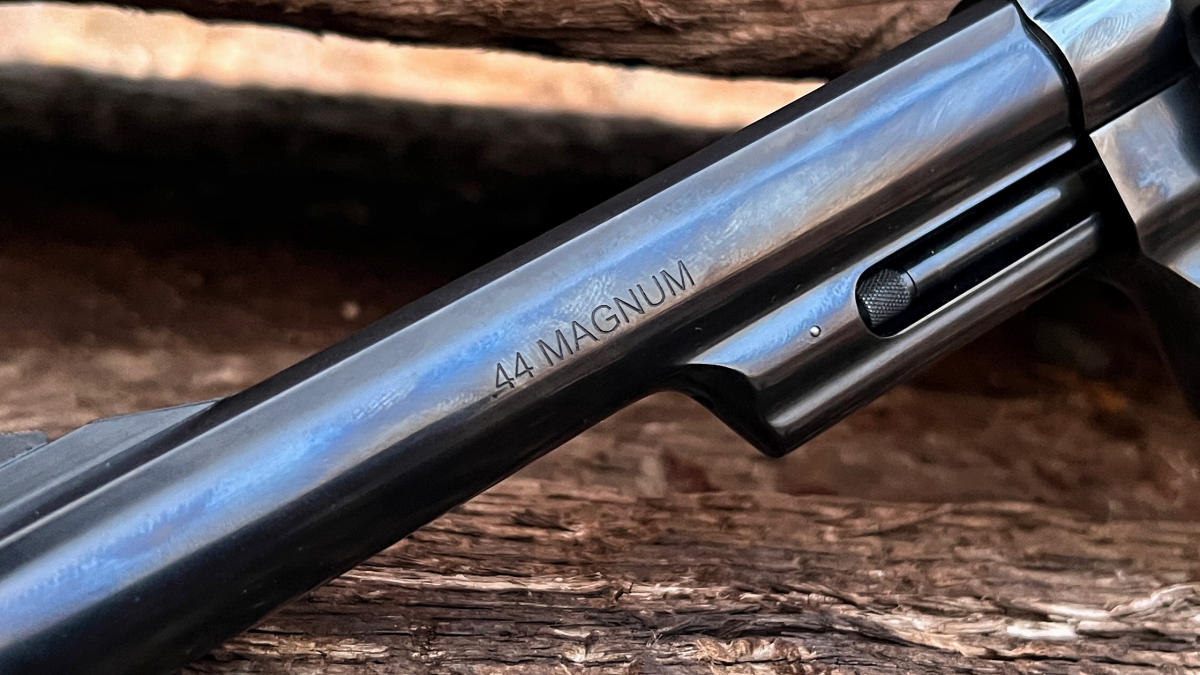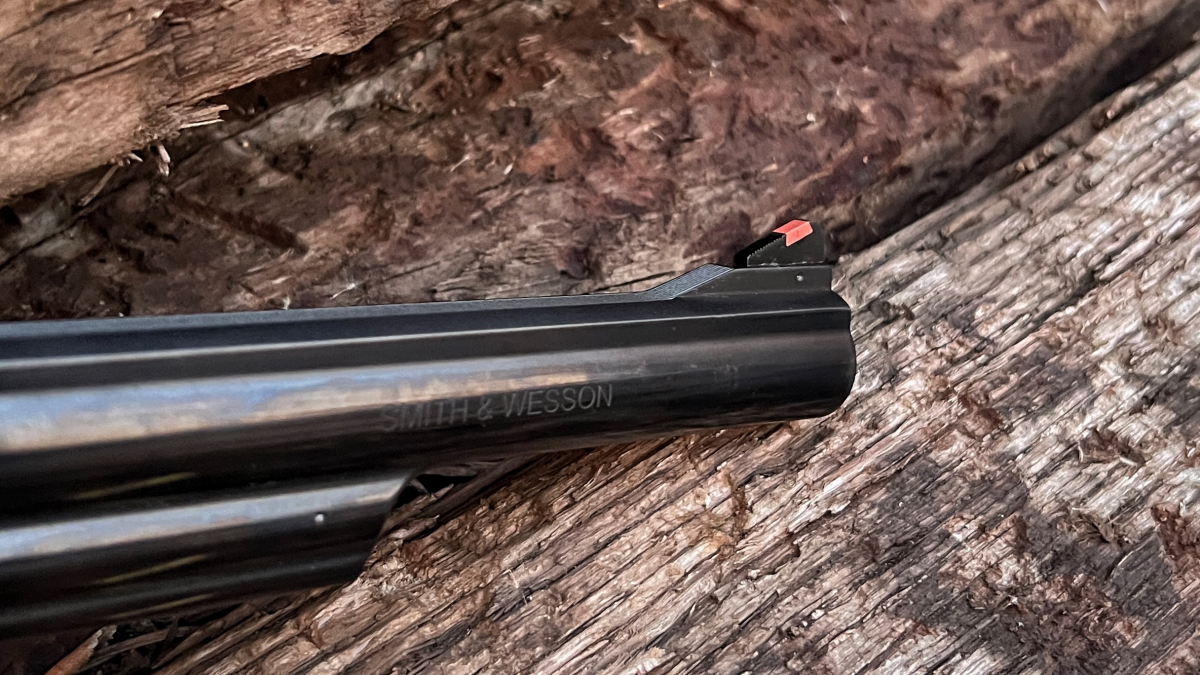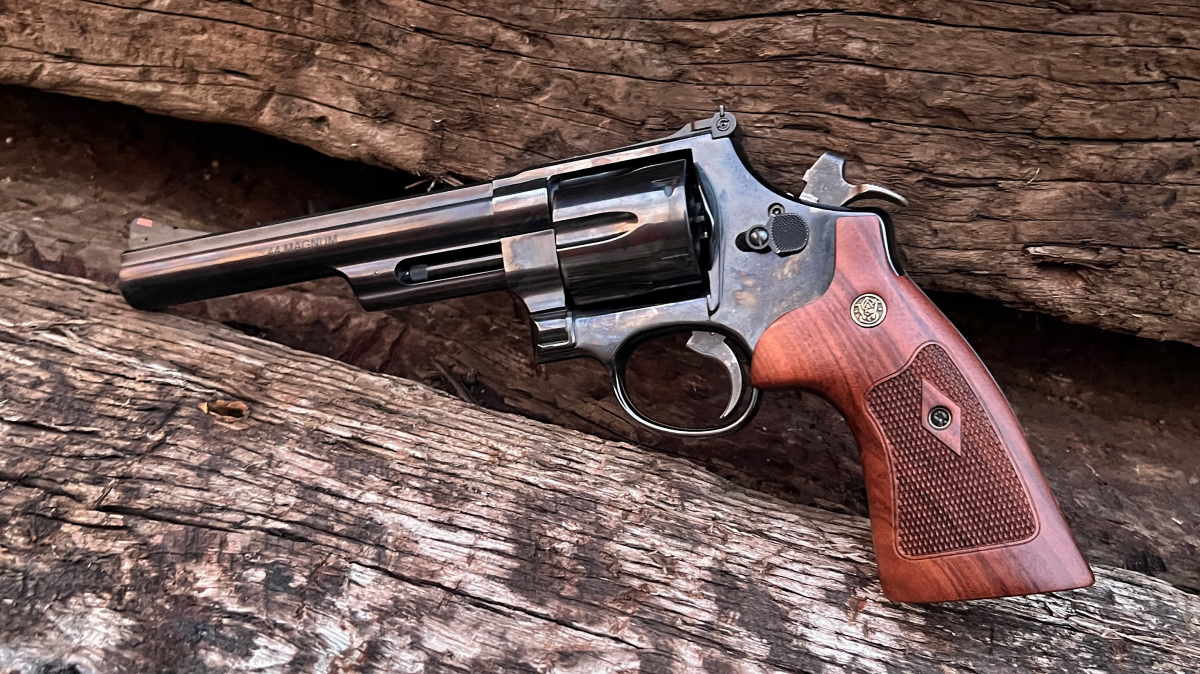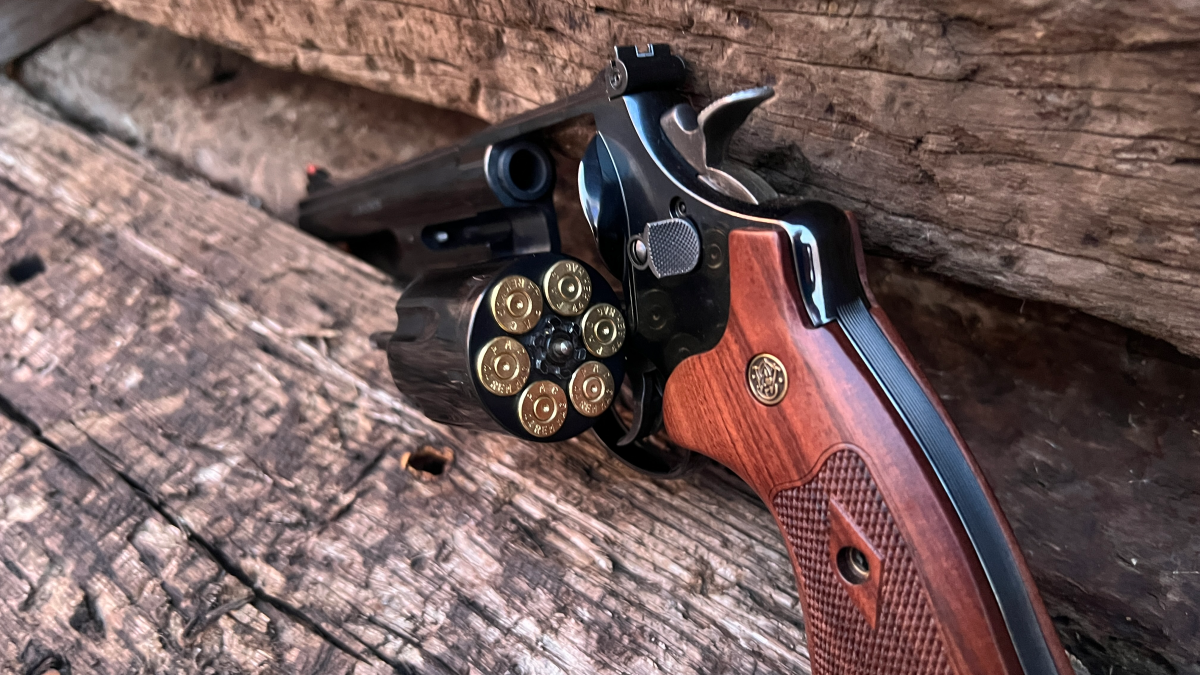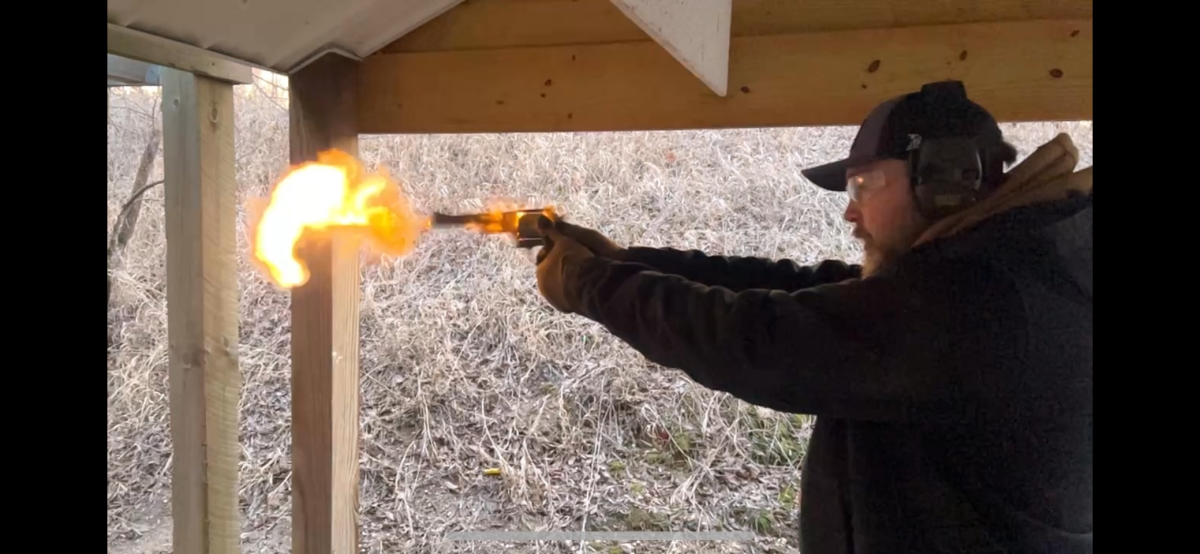Curious Relics #097: Muzzle Flash Included – Smith & Wesson Model 29
Sam.S 09.04.24
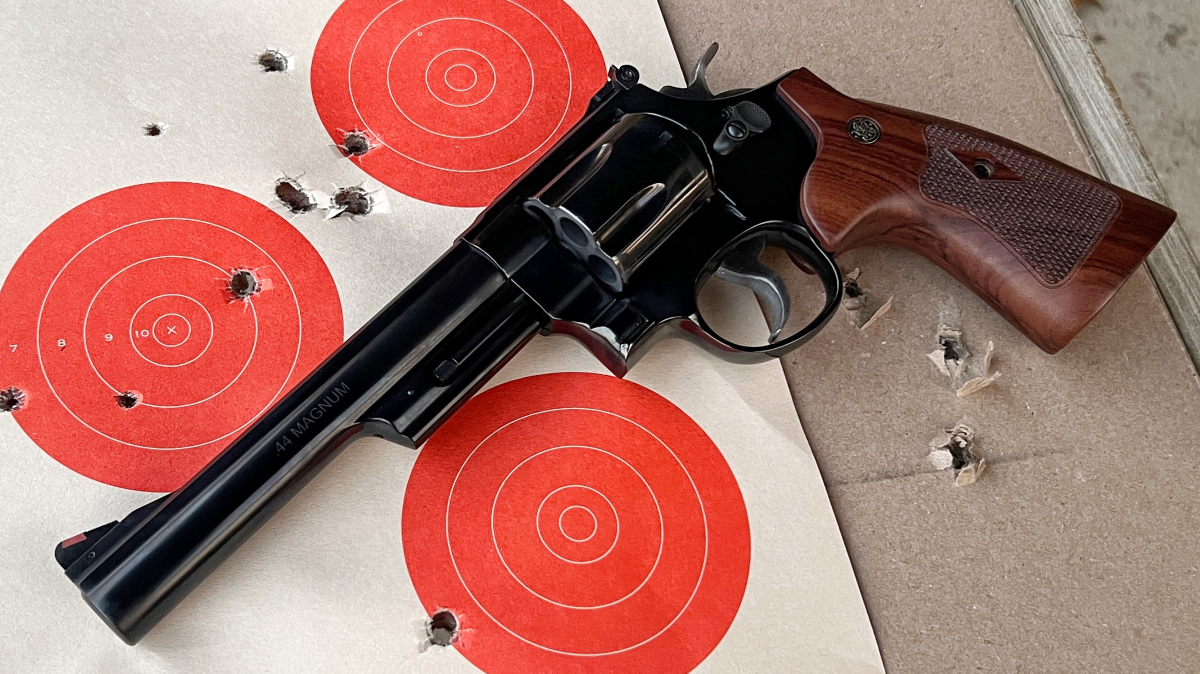
Welcome, if you are a newcomer to this fun bi-weekly segment of AllOutdoor.com! The last time around I covered the history, variations, dating, specifications, and parts and now we are finally onto the best part of all. This time around we are going to take this legendary Model 29 to the range. The Smith & Wesson Model 29 was actually traded in frequently when it came out due to its holding up its reputation as the most powerful handgun in the world. People underestimated its kick and flash but Dirty Harry soaked it up and revived the public’s appreciation for some big bang. Let’s dive in and see if it holds that reputation today!
Recent Coverage in Curious Relics
- Curious Relics #090: From Zero to Hero – The Steyr M1912
- Curious Relics #091: There is a Full Auto Steyr 1912?
- Curious Relics #092: Holsters & Stripper Clips – Steyr 1912
- Curious Relics #093: A Comfy Shooter – Steyr 1912
Welcome to our recurring series of “Curious Relics.” Here, we want to share all of our experiences, knowledge, misadventures, and passion for older firearms that one might categorize as a Curio & Relic – any firearm that is at least 50 years old according to the ATF. Hopefully along the way you can garner a greater appreciation for older firearms like we do, and simultaneously you can teach us things as well through sharing your own expertise and thoughts in the Comments. Understanding the firearms of old, their importance, and their development which lead to many of the arms we now cherish today is incredibly fascinating and we hope you enjoy what we have to share, too!
Range Time: Smith & Wesson Model 29
Let’s be honest: purchasing a Model 29 is not a decision to be taken lightly, especially for your wallet. These revolvers command a premium price, reflecting their status and quality. When I finally brought mine home, my bank account was feeling the sting. This financial consideration played a role in my initial ammunition choices, as I had to be somewhat frugal in stocking up on .44 Magnum rounds.
Fortune smiled upon me when my good friend Adam generously provided a box of ammunition for my inaugural range trip. The rounds in question were older Ultramax 240-grain cartridges, which I would soon discover were on the milder side of the .44 Magnum spectrum.
Stepping up to the firing line with the Model 29 for the first time was a mix of excitement and trepidation. After all, this was once touted as “the most powerful handgun in the world.” I braced myself for significant recoil, only to be pleasantly surprised. The Ultramax loads proved to be remarkably manageable, producing far less kick than I had anticipated. These “cowboy loads,” as they’re often called, allowed me to get a feel for the revolver’s mechanics without overwhelming my hands or wrists.
This initial session was brief but enlightening. It gave me a chance to familiarize myself with the Model 29’s controls, trigger, and sights without the distraction of punishing recoil. However, I knew this was just a taste of what the big Smith was capable of.
For my next outing, I decided to experience the Model 29 closer to its full potential. I acquired several boxes of PMC 180-grain JHP (Jacketed Hollow Point) ammunition, which boasts an impressive muzzle velocity of 1750 feet per second. These rounds would provide a more authentic .44 Magnum experience.
From the first shot, the difference was palpable. The Model 29 came alive in my hands, bucking with authority as it sent those 180-grain projectiles downrange. The recoil was significant but not unmanageable, thanks in part to the revolver’s substantial weight and well-designed grip. Each pull of the trigger resulted in a satisfying boom and a noticeable push against my palms.
I fired a series of six-shot groups from a standing, two-handed stance at a distance of 15 yards. The results were encouraging, if not tack-driving accurate. My groups averaged around 3-4 inches, with some vertical stringing evident. It’s worth noting that as the session progressed, fatigue began to set in, likely contributing to some of the less precise shots. The sights, while classic in design, proved to be more than adequate for practical accuracy. The square notch rear sight paired with the ramped front sight created a sight picture that was easy to acquire and align. However, I did notice that some adjustments might be necessary to bring the point of impact in line with the point of aim.
The Model 29 is a substantial handgun, and its dimensions become immediately apparent when you wrap your hands around the grip. Despite having what I consider average to large-sized hands, I found the factory wooden grips to be somewhat oversized. Their width and overall bulk create a handful that might prove challenging for shooters with smaller mitts.
While these classic wooden grips undoubtedly contribute to the Model 29’s iconic aesthetic, they do leave something to be desired in terms of comfort and control. For extended shooting sessions or for those seeking a more tailored fit, aftermarket grips – either rubber for enhanced cushioning or custom wood for a perfect contour – might be worth considering. Personally, I’m torn between maintaining the revolver’s classic look and potentially improving its ergonomics.
The double-action trigger pull on the Model 29 is substantial, likely exceeding the advertised 10 pounds. However, what it lacks in lightness, it makes up for in smoothness. There’s a consistent, stack-free pull from start to break that, with practice, can be mastered for accurate double-action shooting. In single-action mode, the trigger is a different beast entirely. There’s a distinct, firm wall that you press against until the hammer falls. The break is crisp, though it comes as a surprise – a characteristic that can contribute to excellent accuracy once you become accustomed to it.
Initially, I found the cylinder release to be surprisingly stiff. This caused some fumbling during early reloads as I adjusted to the required force. Happily, after a couple of range sessions and some dry-fire practice at home, the mechanism has loosened up considerably. Now, the cylinder swings out smoothly with a positive push on the release, making reloads much more fluid.
Final Thoughts: Smith & Wesson Model 29
The Smith & Wesson Model 29 Classic is more than just a powerful handgun; it’s a piece of firearms history that commands respect both on and off the range. Its blend of classic styling, robust construction, and formidable ballistics make it a joy to shoot for those who appreciate fine revolvers. While it may not be the most practical choice for everyday carry or high-volume target practice, the Model 29 excels in its role as a range gun, hunting sidearm, or treasured collection piece. Its ability to handle a wide range of .44 Magnum loads – from mild cowboy action rounds to full-power magnums – gives it a versatility that few other handguns can match.
In closing, I hope our Curious Relics segment informed as well as entertained. This all was written in hopes of continued firearm appreciation and preservation. We did not just realize how guns were supposed to look and function. It was a long and tedious process that has shaped the world we live in. So, I put it to you! Is there a firearm out there that you feel does not get much notoriety? What should our next Curious Relics topic cover? As always, let us know all of your thoughts in the Comments below! We always appreciate your feedback.
